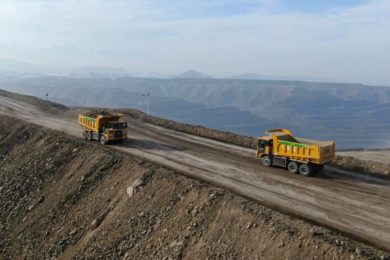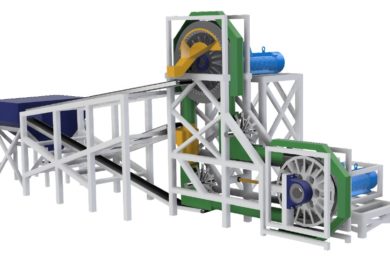The inexorable growth of China and other developing economies will ensure that demand for industrial metals will continue to grow in the long term, according to the head of Australian-listed copper explorer, Citadel Resource Group. In the keynote address to the 21st annual LME Downunder dinner in Melbourne, Australia, Citadel’s CEO, Ms Inés Scotland, said she remained confident that the long-term future for copper and other industrial commodities would be buoyed by the unstoppable growth of the world’s developing economies.
Citadel is currently completing a feasibility study into the development of a mine at its rich Jabal Sayid copper project in Saudi Arabia. Jabal Sayid – the flagship project in Citadel’s portfolio of Saudi Arabian gold and base metal projects – is a 50% joint venture between Citadel and Saudi company CMCI. The other projects are 100% Citadel owned and operated.
“We see China’s growth rate stabilising around 9%, and when we add in growth in regions such as the Middle East, North Africa, India and South America, the worldwide growth story continues,” Scotland said. “The modernisation and passion for growth is alive and well in many countries,” she said.
Citadel, which recently won the “Frontier Explorer of the Year” title at the 2008 Sydney Mining Club, is set to become the first foreign company to establish multiple metals mines in Saudi Arabia – a country better known for its vast oil reserves.
The Company’s portfolio of nine Saudi copper, gold, zinc and nickel projects includes the 74-Mt Jabal Sayid copper project, which is due to move into mine construction next year.
“Thanks to the work done by the French geologists for the Saudi Government, Citadel’s time from discovery to construction will be less than three years – compared to an average of 10 years for most base metals projects,” Scotland said. “Our copper grade is around 2% – about 1.5% higher than the current average for new projects – capital expenditure is less than $500 million, and operating costs will be around $1/lb – all significantly less than the averages for new projects,” she said. “In addition, Saudi has a new mining act, there are no mineral royalties, there is 100% foreign ownership, a flat 20% corporate tax, and to top it off, we pay $0.10/litre for diesel.
“Of course, the current state of the equity and debt markets combined with falling commodity prices makes exploring and developing projects even more challenging regardless of the country you’re working in. But Saudi is a fantastic place to be working in.”
Ms Scotland quoted a report that there were $120 billion in infrastructure projects currently underway in the Gulf Cooperation Council (GCC) countries – mostly in the Emirates and Saudi Arabia. “The GCC growth rate is over 6% this year, which is over $1 trillion,” she said. “The Saudis base their budget on a $50 oil price and their cost of production is less than $5 per barrel. Sub $80 oil prices won’t slow growth in the Middle East.”








